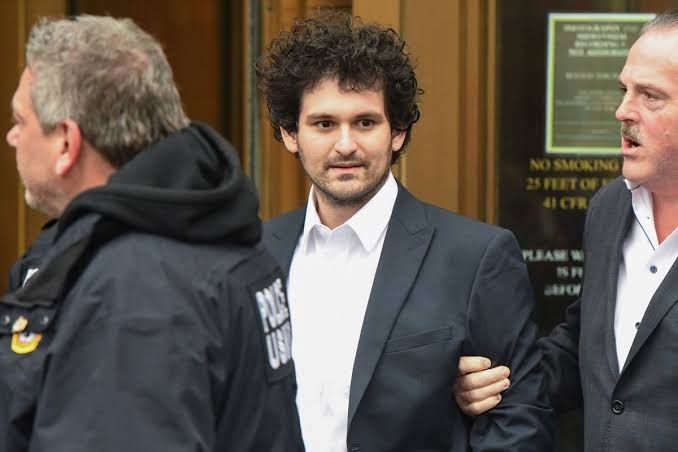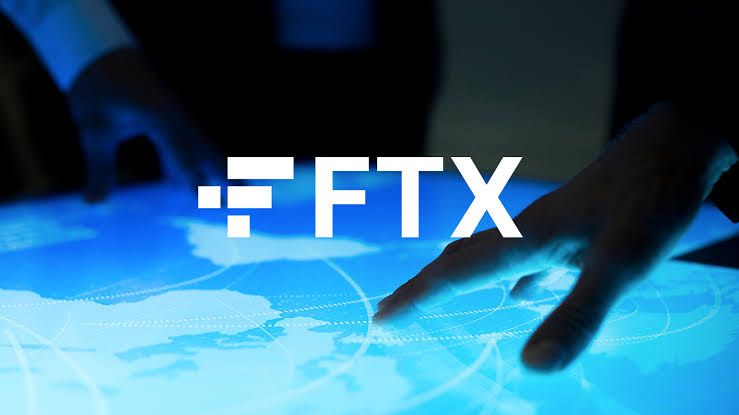Before going bankrupt, crypto exchange FTX and its founder Sam Bankman-Fried (SBF) made generous donations of up to millions of dollars to charity. But now, as the company has collapsed, new management is trying to recover the donations.

John. J. Ray, who currently heads management of FTX, says it's difficult to know a company's total assets and liabilities, even how many bank accounts it has.
A spokesperson for the SBF told the Wall Street Journal (WSJ), quoted from Cryptoslate, Monday (9/1/2023) that charitable contribution funds come from profits from exchanges, not user funds.
FTX's charitable division, the Future Fund, has donated more than US$160 million (Rp 2.5 trillion), to more than 110 non-profit organizations as of September 2022. According to an earlier version of the now-defunct Future Fund website, the donation went to biotechnology startups and university researchers working on Covid-19 Vaccines and pandemic preparedness.
Additionally, the donation goes toward programs that provide online resources and mentoring to STEM students in rural India and China, as well as the development of non-profit solar panels.
In fact, the Future fund pledged US$3.6 million to AVECRIS to develop a genetic vaccine platform. They also pledged US$ 5 million to the Atlas Fellowship to support scholarships and summer programs for high school students.
The biggest donation went to biotechnology startup HelixNano, which received $10 million to conduct a Covid-19 vaccine trial.
In a press release on December 19, 2022, FTX announced it had been approached by multiple parties seeking to return funds received from FTX and its affiliates.
The nonprofit Alignment Research Center focused on machine learning, for example, recently announced it would return a US$1.25 million grant it received from the FTX Foundation. It says the funds morally (if not legally) belong to FTX's customers or creditors.

Similarly, on December 20, ProPublica, a non-profit investigative media outlet, said it would return the $1.6 million it received from the SBF family foundation.
The problem is, many charities have used up the money donated, or at least some, received from FTX and its affiliates. For example, the Good Food Institute, a non-profit think tank focused on plant and cell-based meat alternatives, has spent all of the funds it received from two FTX grants, the WSJ reports.
In addition, Stanford Medicine, which received about US$4.5 million, has disbursed some funds. A spokesperson told the WSJ they are withholding the remaining funds pending legal clarity.
In an interview with the WSJ on Dec. 3, the SBF told the WSJ that while most of his charitable donations were genuine, some were made to gain public support.
"When I promised to give US$2,000 to several branded charities as part of some promotions related to the FTX business, it was as PR as anything else," he said.
Bankruptcy experts explain that whether or not a charity has to return an FTX grant depends on whether the exchange is repaid at the time of donation. In addition, companies that receive funding from the FTX Foundation may have added protections.
However, if the courts declare FTX a Ponzi scheme, as prosecutors allege, the company must return the funds.
Federal prosecutors and regulators allege that SBF, FTX and their affiliates, including the defunct hedge fund Alameda Research, stole user funds and poured billions of dollars into risky bets. FTX and its affiliates filed for bankruptcy in November 2022. SBF pleaded "not guilty" to multiple fraud charges earlier this week, and his criminal trial is set for October 2023.
Before going bankrupt, crypto exchange FTX and its founder Sam Bankman-Fried (SBF) made generous donations of up to millions of dollars to charity. But now, as the company has collapsed, new management is trying to recover the donations.

John. J. Ray, who currently heads management of FTX, says it's difficult to know a company's total assets and liabilities, even how many bank accounts it has.
A spokesperson for the SBF told the Wall Street Journal (WSJ), quoted from Cryptoslate, Monday (9/1/2023) that charitable contribution funds come from profits from exchanges, not user funds.
FTX's charitable division, the Future Fund, has donated more than US$160 million (Rp 2.5 trillion), to more than 110 non-profit organizations as of September 2022. According to an earlier version of the now-defunct Future Fund website, the donation went to biotechnology startups and university researchers working on Covid-19 Vaccines and pandemic preparedness.
Additionally, the donation goes toward programs that provide online resources and mentoring to STEM students in rural India and China, as well as the development of non-profit solar panels.
In fact, the Future fund pledged US$3.6 million to AVECRIS to develop a genetic vaccine platform. They also pledged US$ 5 million to the Atlas Fellowship to support scholarships and summer programs for high school students.
The biggest donation went to biotechnology startup HelixNano, which received $10 million to conduct a Covid-19 vaccine trial.
In a press release on December 19, 2022, FTX announced it had been approached by multiple parties seeking to return funds received from FTX and its affiliates.
The nonprofit Alignment Research Center focused on machine learning, for example, recently announced it would return a US$1.25 million grant it received from the FTX Foundation. It says the funds morally (if not legally) belong to FTX's customers or creditors.
Similarly, on December 20, ProPublica, a non-profit investigative media outlet, said it would return the $1.6 million it received from the SBF family foundation.

The problem is, many charities have used up the money donated, or at least some, received from FTX and its affiliates. For example, the Good Food Institute, a non-profit think tank focused on plant and cell-based meat alternatives, has spent all of the funds it received from two FTX grants, the WSJ reports.
In addition, Stanford Medicine, which received about US$4.5 million, has disbursed some funds. A spokesperson told the WSJ they are withholding the remaining funds pending legal clarity.
In an interview with the WSJ on Dec. 3, the SBF told the WSJ that while most of his charitable donations were genuine, some were made to gain public support.
"When I promised to give US$2,000 to several branded charities as part of some promotions related to the FTX business, it was as PR as anything else," he said.
Bankruptcy experts explain that whether or not a charity has to return an FTX grant depends on whether the exchange is repaid at the time of donation. In addition, companies that receive funding from the FTX Foundation may have added protections.
However, if the courts declare FTX a Ponzi scheme, as prosecutors allege, the company must return the funds.
Federal prosecutors and regulators allege that SBF, FTX and their affiliates, including the defunct hedge fund Alameda Research, stole user funds and poured billions of dollars into risky bets. FTX and its affiliates filed for bankruptcy in November 2022. SBF pleaded "not guilty" to multiple fraud charges earlier this week, and his criminal trial is set for October 2023.
Congratulations, your post has been curated by @r2cornell, a curating account for @R2cornell's Discord Community.